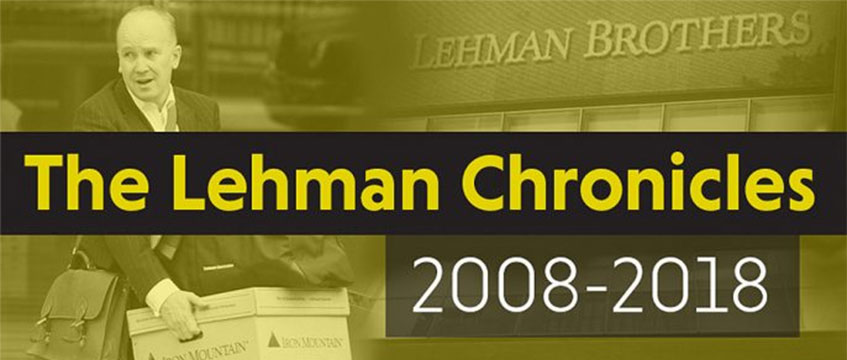The collapse of Lehman Brothers on 15 September 2008 saw values plummet, some of property’s biggest names fall into administration and moguls lose their fortunes.
Since then some have made their careers and profited massively from the distress. Others have never recovered.
 EG spoke to the industry’s leading figures who were at the centre of the storm about their vivid recollections of the harrowing era and the lessons that have been learnt since.
EG spoke to the industry’s leading figures who were at the centre of the storm about their vivid recollections of the harrowing era and the lessons that have been learnt since.
A whirlwind decade has now flown by since the collapse of Lehman Brothers, an economic event that has since shaped the lives and careers of almost everyone in the real estate industry.
Lessons learned?
So is property and banking now better set up to guard against such downturns and have lessons been learnt from past mistakes?
The collapse of Lehman and the subsequent recession in the UK was one that was banking and property-led rather than the result of a downturn in activity in industry. This was caused by an overexuberance towards debt that most argue does not exist today.
“The banking sector is in a better shape than it was. There has been a huge change in how banks are regulated and the capital that they have to hold,” says Margaret Doyle, head of clients and markets, financial services and real estate and partner at Deloitte.
“Banks are being forced to hold liquid assets to avoid having a liquidity crisis as well as a solvency crisis. Regulators are now also interested in the culture and how people behave within banks as well as macro prudential stability, meaning that in the past they were interested in what a single individual or institution did.
“Now they are looking at correlation and the way in which assets behave in tandem, for example if they are all piling into real estate.”
The attitude of borrowers, many of whom have been scarred by the disasters of the last crisis, towards debt has also changed.
“There is definitely a healthier attitude now,” says Richard Croft, chief executive of M7 Real Estate.
“Debt is like a chainsaw, it’s a tremendously useful tool and can cut down forests if you use it wisely but people now understand you can also lose your head if you don’t. It’s not always your friend. My team and I were caught out by the financial crisis. We weren’t expecting it and at Halverton were substantially over- levered.”
The banking sector is in a better shape than it was. There has been a huge change in how banks are regulated and the capital that they have to hold
While lessons have clearly been learnt in many quarters, some distress is already starting to creep into some areas of the market, most notably in retail, and borrowers and lenders must continue to be on high alert at this late point in the cycle.
“I would call it distress with a little d,” says Duncan Owen, global head of real estate at Schroders.
“It’s not coming from the same avenues and causes that we had in 2008 to 2010. Refinancing and debt is more expensive than envisaged in some instances because of the assets some are invested in and that is closely linked to the retail sector. In 2008 the capital structure broke because of debt but tenants didn’t default.
“The risk now is that income may stop coming in and that is actually more fundamental.”
To send feedback, e-mail david.hatcher@egi.co.uk or tweet @hatcherdavid or @estatesgazette











